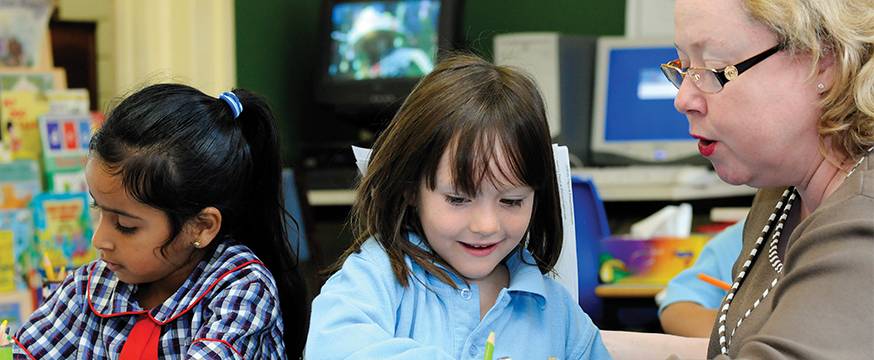
Time to reform educational assessment
Research 27 Mar 2013 3 minute readSignificant reform is needed in the field of educational assessment, according to a review by Professor Geoff Masters, Chief Executive of ACER.
Reforming Educational Assessment: Imperatives, principles and challenges, released at an ACER conference in March, calls for a reconceptualisation of assessment and reporting in schools in order that they focus on the progress that students make, regardless of their starting points.
'Traditional expectations of assessment were based on a belief that the role of teachers was to deliver the curriculum, the role of students was to learn, and the role of assessment was to establish the extent to which students had successfully learnt what their teachers had taught,' said Professor Masters.
The review says it is common practice in schools to assess students against the expectations for their year level and to report success in meeting those expectations in terms of A to E grades. However, this traditional practice fails to recognise that students of the same age and in the same year of school are at very different points in their learning and development. Typically, the most advanced students in any school year are about six years ahead of the least advanced.
The review argues for the development of stronger connections between scientifically based understandings of learning and the assessment of learning progress. Educational assessment should be used to understand rather than to judge learning, and be an integral part of effective teaching and learning, rather than something that stands apart from, and follows, teaching and learning.
Masters says that the fundamental purpose of assessment is to establish where learners are in their learning at the time of assessment. He identifies a set of five design principles which should underpin a Learning Assessment System.
'Instead of judging success only in terms of year level expectations, this approach recognises the progress that all students can make in their learning, and celebrates excellent progress, regardless of students’ starting points.
'The reform of assessment thinking and practice has the potential to lead and drive improvements in teaching and learning. However, assessment reform is likely to be difficult in the absence of broader educational reforms. For example, assessment to establish where individuals are in their learning is largely pointless if teachers intend to deliver exactly the same content to all students in a class regardless of their current levels of achievement.
'Developing and implementing such changes in assessment thinking and practice constitute a long-term agenda – they will occur only over a number of decades,' said Professor Masters.
The review was launched at ACER’s Excellence in Professional Practice Conference, Teaching the Australian Curriculum: Excellence and innovation in the classroom, on the Gold Coast in March.
The Australian Education Review (AER) series is edited by ACER Senior Research Fellow Suzanne Mellor. AER number 57, Reforming Educational Assessment: Imperatives, principles and challenges by Geoff Masters, is available as a free download from the ACER website at <www.acer.edu.au/aer> Print copies can be purchased from ACER Press, ph.1800 338 402 or email sales@acer.edu.au